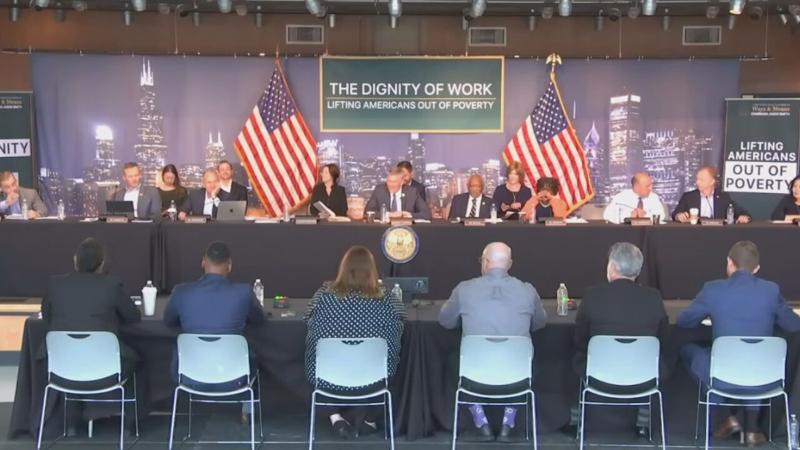(The Center Square) – A Congressional hearing held in Chicago Tuesday explored ways to lift people out of poverty with employment being the main theme.
The U.S. House Ways and Means Subcommittee on Work and Welfare held a field hearing Tuesday in Chicago to examine ways to help people get out of poverty through employment. The hearing was called the “Dignity of Work: Lifting Americans Out of Poverty.”
“No amount of handouts or government assistance, no matter how well intentioned, can substitute for the intangible benefits and dignity that work brings to individuals and their families,” said Illinois U.S. Rep. Darin LaHood, R-Peoria, the chairman of the committee.
Matt Paprocki, president of the Illinois Policy Institute, discussed strategies for reducing poverty that Congress could implement to uplift impoverished individuals, including instituting work requirements with welfare benefits.
“Institute work requirements similar to the successful bipartisan reform that was passed in 1996 which lifted millions of people out of poverty,” said Paprocki.
Paprocki said the federal government should end the benefits cliff because the system leaves people with impossible choices like providing for their family at a job or reducing work hours and receiving greater benefits from government assistance.
Paprocki also said tax credits for apprenticeship programs should be expanded because the average income for a person completing an apprenticeship is $77,000.
According to the Illinois Policy Institute’s Center for Poverty Solutions, just over 2% of Chicagoans with full-time employment experience poverty. However, too many barriers and government assistance programs prevent individuals from entering the workforce full-time.
“When individuals become separated from meaningful work and are no longer earning their own incomes, their dignity takes a hit and American society suffers,” said Paprocki. “Lawmakers can make meaningful strides for reducing poverty nationwide by eliminating barriers to work.”







